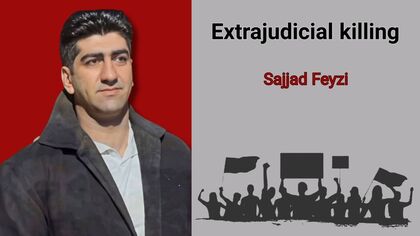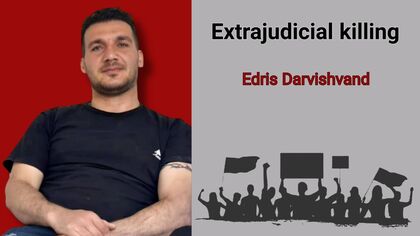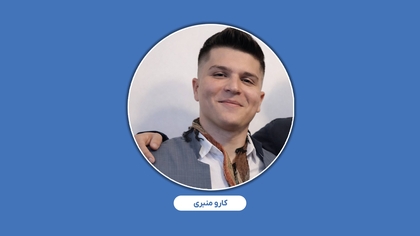UN Resolution Ramps up Cross-Regional International Pressure on Iran's Human Rights Crisis
14:44 - 23 November 2011

The draft resolution was adopted with 86 votes in favor, 32 against, and 59 abstentions. Mohammad Javad Larijani, Iran’s highest human rights official, spent this last week in New York defending Iran’s human rights record and addressed the GA just prior to the vote, attempting, unsuccessfully, to rally opposition to the resolution.
“Iran can try to whitewash its record all it wants but time and again distinct UN bodies come to the conclusion that the government’s treatment of its people is inhumane and can no longer be ignored,” added Ghaemi.
In just the past two months, three separate and independent UN authorities, the General Secretary, Ban Ki Moon, the UN Human Rights Committee, and the Special Rapporteur on the situation of human rights in Iran, Ahmad Shaheed, have all condemned Iran’s human rights practices. Their reports highlight secret executions, torture, widespread arbitrary detentions, discrimination against women, religious and ethnic minorities, and suppression of speech, association and assembly.
The resolution enjoyed broad cross-regional support including that of key Arab Spring countries, with Tunisia and Libya voting yes, and Egypt changing its vote from no to abstention. The positive votes included Japan, Bosnia and Herzegovina, and Colombia, as well as South Korea, Senegal, Tanzania and Central African Republic, who changed their votes this year to yes. Turkey refrained from voting altogether. The majority of Latin American states, including Argentina, Chile, the Dominican Republic, El Salvador, Honduras and Mexico, along with all members of the European Union, voted yes.
The GA took up the issue of elections in Iran, strongly urging Iran “to ensure free, fair, transparent and inclusive parliamentary elections in 2012 that reflect the will of the people and are consistent with the Universal Declaration of Human Rights, the International Covenant on Civil and Political Rights.” For the first time, the GA called “on the Government to allow independent observation, including by civil society and candidates, of the electoral process and to allow independent local and international journalists to freely observe and report.”
UN member states pressed Iran on its “continuing and sustained house arrest of leading opposition figures from the 2009 presidential elections,” indicating the nine-month house arrest of Mir Hussein Mousavi and Mehdi Karroubi.
The resolution also called for the immediate release of all prisoners of conscience. More than 400 prisoners of conscience, who have been jailed since Iran’s disputed 2009 presidential election solely for their opinions and beliefs, are languishing in prisons and subjected to ill-treatment. The Judiciary has handed down harsh prison and flogging sentences and fines to activists on baseless national security charges. The GA resolution expressed deep concern for these detentions and for human rights lawyers who have been arbitrarily arrested and prosecuted, including associates of the Defenders of Human Rights Center such as Abdolfattah Soltani, Nasrin Sotoudeh, and Mohammad Seifzadeh.
The GA draft resolution also challenged Iran on its treatment of ethnic and religious minorities. Member states called on the government “to eliminate discrimination against, and exclusion of ... members of the Baha’i faith, regarding access to higher education.” The resolution criticized the “violent suppression and detention of ethnic Arabs and ... the violent repression of environmental protests in Azeri territory.” The GA also noted “the high rate of executions of persons belonging to minority groups.”
The GA took serious issue with Iran’s overall use of the death penalty, citing “the continuing high incidence of and dramatic increase ... of the death penalty in the absence of internationally recognized safeguards.” This is the first time the GA has criticized Iran’s practice of “secret group executions, as well as reports of executions undertaken without the notification of the prisoner’s family members or legal counsel.”
So far in 2011, Iran has conducted at least 455 executions, 161 of which were secret, making it the leading per-capita executioner in the world. The vast majority of these executions are for offences for which the death penalty is not permissible under international law, such as drug crimes and consensual sexual conduct. At least three of the people executed this year were under the age of 18 at the time of the crime.
The passage of the resolution will mark the eighth consecutive year the GA has cited Iran’s dramatic failure to abide by its human rights obligations and urged cooperation with UN authorities to address these failures. The resolution called for cooperation with Ahmad Shaheed, the newly appointed Special Rapporteur on the situation of human rights in Iran, allowing him “unfettered access to the country to carry out his mandate.” In recent years, Iran has continued to thwart all international efforts to assist in improving its human rights record and has not had any direct communication with Shaheed since the start of his mandate in August 2011.
The Campaign welcomes the wide-reaching, cross-regional support for the resolution, and urges Iran to begin a program of constructive cooperation with the United Nations to address the concerns raised.
Source: International Campaign for Human Rights in Iran
“Iran can try to whitewash its record all it wants but time and again distinct UN bodies come to the conclusion that the government’s treatment of its people is inhumane and can no longer be ignored,” added Ghaemi.
In just the past two months, three separate and independent UN authorities, the General Secretary, Ban Ki Moon, the UN Human Rights Committee, and the Special Rapporteur on the situation of human rights in Iran, Ahmad Shaheed, have all condemned Iran’s human rights practices. Their reports highlight secret executions, torture, widespread arbitrary detentions, discrimination against women, religious and ethnic minorities, and suppression of speech, association and assembly.
The resolution enjoyed broad cross-regional support including that of key Arab Spring countries, with Tunisia and Libya voting yes, and Egypt changing its vote from no to abstention. The positive votes included Japan, Bosnia and Herzegovina, and Colombia, as well as South Korea, Senegal, Tanzania and Central African Republic, who changed their votes this year to yes. Turkey refrained from voting altogether. The majority of Latin American states, including Argentina, Chile, the Dominican Republic, El Salvador, Honduras and Mexico, along with all members of the European Union, voted yes.
The GA took up the issue of elections in Iran, strongly urging Iran “to ensure free, fair, transparent and inclusive parliamentary elections in 2012 that reflect the will of the people and are consistent with the Universal Declaration of Human Rights, the International Covenant on Civil and Political Rights.” For the first time, the GA called “on the Government to allow independent observation, including by civil society and candidates, of the electoral process and to allow independent local and international journalists to freely observe and report.”
UN member states pressed Iran on its “continuing and sustained house arrest of leading opposition figures from the 2009 presidential elections,” indicating the nine-month house arrest of Mir Hussein Mousavi and Mehdi Karroubi.
The resolution also called for the immediate release of all prisoners of conscience. More than 400 prisoners of conscience, who have been jailed since Iran’s disputed 2009 presidential election solely for their opinions and beliefs, are languishing in prisons and subjected to ill-treatment. The Judiciary has handed down harsh prison and flogging sentences and fines to activists on baseless national security charges. The GA resolution expressed deep concern for these detentions and for human rights lawyers who have been arbitrarily arrested and prosecuted, including associates of the Defenders of Human Rights Center such as Abdolfattah Soltani, Nasrin Sotoudeh, and Mohammad Seifzadeh.
The GA draft resolution also challenged Iran on its treatment of ethnic and religious minorities. Member states called on the government “to eliminate discrimination against, and exclusion of ... members of the Baha’i faith, regarding access to higher education.” The resolution criticized the “violent suppression and detention of ethnic Arabs and ... the violent repression of environmental protests in Azeri territory.” The GA also noted “the high rate of executions of persons belonging to minority groups.”
The GA took serious issue with Iran’s overall use of the death penalty, citing “the continuing high incidence of and dramatic increase ... of the death penalty in the absence of internationally recognized safeguards.” This is the first time the GA has criticized Iran’s practice of “secret group executions, as well as reports of executions undertaken without the notification of the prisoner’s family members or legal counsel.”
So far in 2011, Iran has conducted at least 455 executions, 161 of which were secret, making it the leading per-capita executioner in the world. The vast majority of these executions are for offences for which the death penalty is not permissible under international law, such as drug crimes and consensual sexual conduct. At least three of the people executed this year were under the age of 18 at the time of the crime.
The passage of the resolution will mark the eighth consecutive year the GA has cited Iran’s dramatic failure to abide by its human rights obligations and urged cooperation with UN authorities to address these failures. The resolution called for cooperation with Ahmad Shaheed, the newly appointed Special Rapporteur on the situation of human rights in Iran, allowing him “unfettered access to the country to carry out his mandate.” In recent years, Iran has continued to thwart all international efforts to assist in improving its human rights record and has not had any direct communication with Shaheed since the start of his mandate in August 2011.
The Campaign welcomes the wide-reaching, cross-regional support for the resolution, and urges Iran to begin a program of constructive cooperation with the United Nations to address the concerns raised.
Source: International Campaign for Human Rights in Iran



